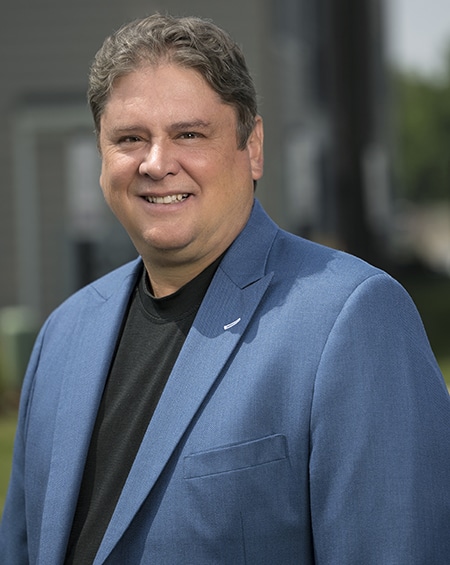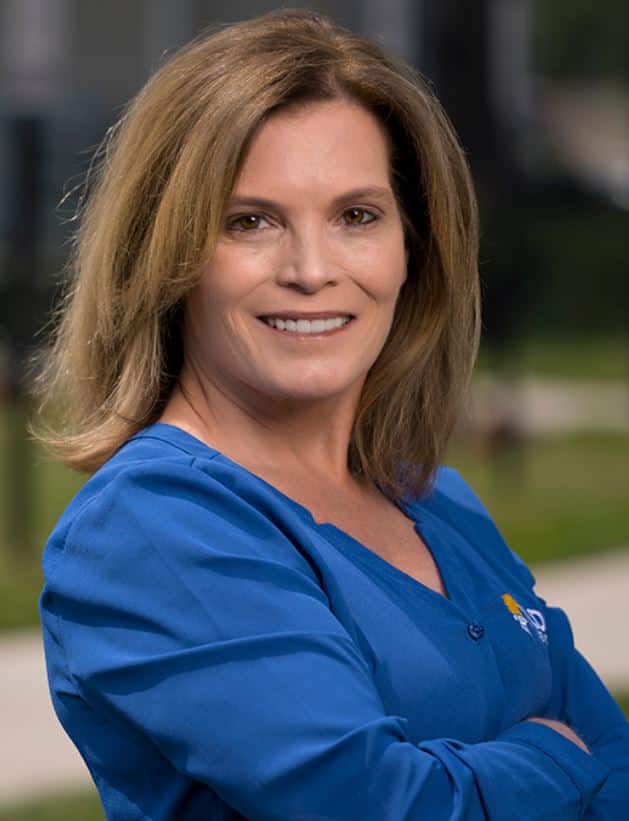LDG Development: Using Technology, Data, and Strong Community Relations to Keep Communities Safe
By Pamela Martineau
7 min read
Operating over 100 affordable housing communities across nine states, LDG Development has implemented a suite of security systems tailored to the specific safety needs of each of its unique developments. From license plate readers and gunshot detection technology to designated areas for police officers to write reports, LDG Development offers a blend of high- and low-tech security systems to enhance resident safety.

“Our number one priority is we want to keep residents safe,” explains Chris Dischinger, co-owner and chief executive officer of the Louisville, Kentucky-headquartered LDG Development. “We’ve taken a proactive approach about safety.”
Part of that proactive approach was hiring Yvette Gentry, the former police chief of Louisville, as the new director of resident and community safety. Gentry, who spent over 27 years with the police force in Louisville, working her way up to acting police chief in 2020, was hired by LDG in 2022. Gentry also worked for United Way. Since joining LDG, she has worked on harnessing the latest technology in crime deterrence to maintain welcoming, pleasant communities.
Gentry collaborates closely with LDG’s Resident Safety Team, which was established in 2022. This team comprises three retired law enforcement executives with over 75 years of combined experience across Texas, Kentucky, Arkansas, and New York City. All members are certified in Crime Prevention Through Environmental Design. Additionally, LDG includes a risk management analyst on the team with over 20 years of experience in the insurance and claims industry. His role involves analyzing data on incidents and claims to identify patterns and collaborating to mitigate those risks.

“It was a great opportunity to combine my passions,” says Gentry. “I had spent all this time in law enforcement, then went away from it to work on policy for a nonprofit, which is also a passion. LDG gave me the opportunity to do both careers. I can be resident-centered and work with people, but also use my expertise in law enforcement.”
Using Technology and Data to Develop Specific Safety Plans
Gentry explains that gathering and studying data to develop specific safety plans is among the best techniques to enhance safety in affordable housing communities.
“The thing that’s most effective is being data-driven. It’s trying to get a handle on where your properties are in terms of the trends in crime in those areas,” Gentry says.
Gentry cites statistics indicating that car thefts, particularly of Hyundais, have dramatically increased in some communities served by LDG. These statistics, among others, helped convince LDG leaders to implement license plate reader (LPR) technology in many of their communities. The Flock LPR technology reads the license plates of cars entering and exiting housing developments. The readers automatically notify local police if a car is reported stolen, is part of a missing person investigation, or belongs to someone involved in domestic violence or other crimes.
“It’s not that our residents are engaging in crime. It’s looking for trespassers who come onto our properties to perhaps commit a crime,” she says. “By having this technology, we’re able to make sure that the police are alerted and can get to the location faster and hopefully prevent one of our residents from becoming a victim of crime.”
LDG Development also installed Raven gunshot and glass-breaking detection software in some communities to integrate with the Flock LPRs. Raven is designed to detect gunshots, distinguishing them from fireworks or other loud noises. It also detects the sound of smashing glass. Like the Flock LPR, the on-site recorders send signals immediately to local police if gunshots or breaking glass are detected. This technology is invaluable, especially since research indicates that residents in all types of communities nationwide tend to report only about 12 percent of gunshots that ring out.
Lisa Dischinger, co-owner and chief of staff at LDG, says that maintaining accurate data on crime trends and incidents in residences also helps to assuage larger community concerns about crime in affordable housing communities.
“On a couple of occasions, someone will say anecdotally, ‘Your property has got all these problems,’” says Lisa Dischinger. “(Gentry) will pull the statistics and be able to tell them that we don’t have the problems they say we have, or perhaps they are at another property down the street.”

Forging Strong Bonds with Local Police Departments
Forging and maintaining strong bonds with local police departments is another essential way LDG works to keep its communities safe. In some of its developments, LDG designates specific areas where police officers can write reports if they are called to the community. They can also use the space to check in at the residence occasionally.
“They can come and get a cup of coffee. We want to have that strong relationship. We think it benefits everybody,” Lisa Dischinger says.
At some properties, LDG hires security guards, including off-duty police officers, to patrol the communities. LDG also encourages law enforcement personnel to move into their communities.
“If we have a courtesy police officer living on our site, we really like that. It helps the police department, too,” she says. “It helps them to build good relationships, but it also gives us that visible presence.”
She adds that LDG utilizes crime trend data to determine the best times for security guards to patrol the properties. Occasionally, the patrols are at random times, so people who might be watching a property don’t think there are certain times without coverage.
“For instance, if we have a property where we are seeing a lot of car break-ins and they are happening at night between 11 p.m. and 1 a.m., that helps us make sure that security officers are there at that specific time…We are using the data to inform us what we need at what time.”
Crime Prevention By Design
Crime prevention is integrated into the design of the communities LDG builds. Enhanced lighting is installed around dog parks, playgrounds, and pools, while security contractors monitor cameras in real time. Exterior lighting has increased by 30 to 50 percent on most properties. Gentry says LDG works to create “territorial enforcement” with good sight lines and signage stating the grounds are private property with no trespassing allowed. Access to the interior of the buildings from the outside is controlled with fobs or access codes so people can’t “come off the street and get into buildings.” Shrubbery is also pruned to prevent intruders from hiding behind the greenery as they try to break into a window or door.
“We want to make sure we have good camera coverage in all communal areas of the properties,” says Gentry. “We have someone monitoring our pools to make sure they are safe. If someone gets into our pools after hours, we sound alarms and dispatch guards.”
The company also uses high-quality interior locks and doors, which further deters would-be burglars. Residents must have parking permits to park on the property.
“I could probably look through a couple of years of data and count on one hand the times that someone has been burglarized at one of our properties,” she says.
With all its safety measures—license plate readers, cameras, and recording devices—Gentry says the company remains mindful of protecting residents’ rights to privacy and has never received a complaint about the cameras.
“We want people to know where we have cameras. That’s part of the strategy. It’s not to sneak up on people and make them feel as though they are under 24/7 surveillance,” says Gentry.
Gentry adds that property managers communicate with residents regularly so they know what safety measures are in place.
Vigilance is the Best Deterrent
Gentry stresses that a “vigilant resident is still our best tool” for keeping properties safe. LDG fosters a safety culture where residents feel comfortable reporting concerns.
“We always want our residents to feel comfortable telling us things when they see things or comfortable calling the police when they need them,” she says. “In a lot of places, property managers are reluctant to tell their residents to call the police because they don’t want a higher volume of calls. But we don’t do that…We don’t discourage people from picking up the phone and calling the people who are best suited to deal with crime.”
